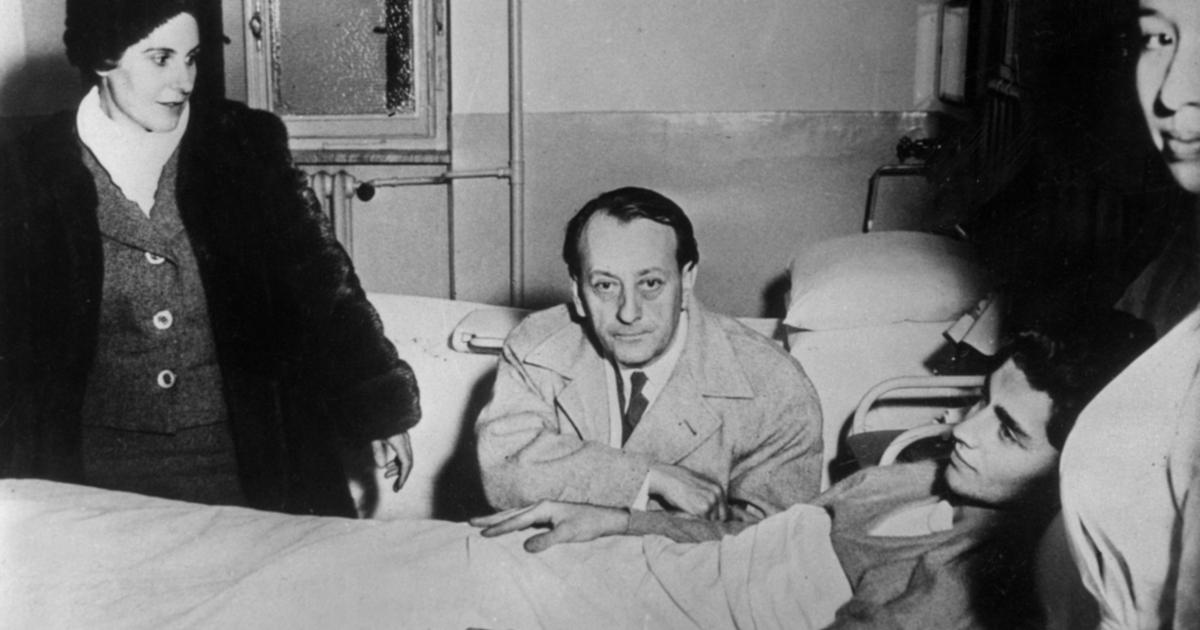This article is taken from
Figaro Histoire “The epic of the conquistadors”
.
Find in this issue
a special file on the conquest of the New World.
L
e Figaro Histoire
was born in April 2012 in the well-known Parisian premises of 14 boulevard Haussmann.
This is where it continues to be made six times a year with undiminished passion.
There we receive daily mail from loyal and demanding readers.
And yet, by choosing to celebrate its decade of existence in Athens, it seemed to us to return to the place of its true birth;
look back with emotion on its spiritual cradle.
From the Greek miracle, born in the 5th century BC.
J.-C. with a smile of the gods,
Le Figaro Histoire
asserts the nurturing ambition, the founding balance.
It is to approach it that, from May 25 to 30, some forty readers followed in the footsteps of 19th century Philhellenes.
Driven by the same thirst and the same gratitude towards the mother of Western culture, they took advantage of an exceptional program of conferences, visits and shows, to which they were invited by Alexis Brézet, editorial director of
Le Figaro,
Michel De Jaeghere, director of the editorial staff of
Le Figaro Histoire,
and Isabelle Schmitz, deputy editor-in-chief of
Le Figaro Hors-Série
and organizer of these Athenian Days, in partnership with the town hall of Athens and with the support of the Greek National Tourist Office (GNTO) .
Greece at heart
Go to slideshow (8)
The setting offered to the conferences was already a journey in itself.
It was in fact at the Academy, a dazzling pastiche of a Greek temple built in the heart of Athens for King Othon of Bavaria, that the public was warmly welcomed by Christos Zerefos, Secretary General of this prestigious learned society, placed under the patronage of the school founded a few meters away by Plato.
Greece as the source of our heritage: the four conferences that followed one another for two days in this dazzling enclosure had given each other the word.
Michel De Jaeghere opened the ball with a reflection on the invention of democracy in Athens, showing how it only conceived of itself as a reflection of a law rooted in human nature.
Jean Tulard, president of the scientific committee of
Figaro Histoire,
retraced with unparalleled verve the epic of the French philhellenes, who rushed to the bedside of Greece in the 1820s to liberate it from the Ottoman Empire.
François-Xavier Bellamy took the audience on a fascinating journey to the sources of philosophy, recalling that it was still in Greece that the adventure of reason began.
Finally, writers Sylvain Tesson and Andrea Marcolongo engaged in a fruitful dialogue on Homer's “genius language” and the inexhaustible treasure it represents for humanity.
Outside the walls of the Academy, the other high places of Athens were as many stages of choice to celebrate this anniversary.
After a sumptuous reception by the mayor of Athens, Kóstas Bakoyannis, on the terrace of the town hall, it is naturally in the holy of holies of Athens, the Acropolis and its museum, that the visitors went on pilgrimage.
It is difficult, at the foot of the Parthenon or in front of the caryatids of the Erechtheion, to find a word that better captures the sacred thrill inspired by such a feat of perfection and grace.
An extended experience at the magnificent Archaeological Museum, with its sublime collection of
kouroi,
its monumental bronzes, its poignant funerary steles or its famous
Mask of Agamemnon.
But it was the grace of an exceptional human encounter that made the visit to the Pinacoteca Nationale the high point of this earthly odyssey.
Soul of this museum of 19th and 20th century painting, which she has made one of the finest in Greece, its director, Marina Lambraki Plaka, greeted visitors with these words of circumstance:
"I consider you true heirs philhellenes",
before treating them to raki and sheep's cheese, two specialties from his native Crete.
This tribute from a great lady of Greek culture, who studied in France and considered our country as her second homeland, took a poignant turn when, three weeks later, the news broke of her unexpected death, at 83 years old. .
For everyone, another aspect of the Greek miracle was revealed in this unforgettable encounter.
Descended expressly from Parnassus, the Muses were part of the trip.
First Terpsichore, who presided over a dazzling spectacle of traditional Greek dances from the Dora Stratou school on the shores of Lake Vouliagmeni, following the debate during which Alexia Kefalas, correspondent for
Le Figaro
in Athens, gave the participants for his knowledge of the political, social and cultural life of contemporary Greece.
Then Clio who, on the stage of the delightful Thision open-air cinema, inspired Sylvain Tesson and the actor William Mesguich to create the two-voice epic
La Liberté à mort,
who revived the philhellenic adventure of Lord Byron.
In the land of tragedians, Melpomene bided his time.
It was an exquisite hour, born from the meeting of a bewitching place and an exceptional troupe.
In the natural setting of the Pnyx, the hill where the ancient assembly of citizens sat, the Démodocos troupe, led by its director Philippe Brunet, performed
Antigone
by Sophocles at dusk.
You should perhaps have seen, that evening, the sun descending on the Acropolis, then the moon illuminating this sumptuous backdrop behind actors wearing ancient masks and playing, in French and ancient Greek, the eternal confrontation. of divine law and natural law, in order to be able to speak of eternity.
The same feeling was renewed the next day on the island of Aegina, where the Athenian Days ended.
At the foot of the temple of Aphaia, it was Calliope, Muse of epic poetry, who had made an appointment with visitors.
There, accompanied by his lyre, Philippe Brunet enchanted the audience by declaiming a few verses from the
Iliad,
before giving way to his troupe, who launched into a dizzying bacchanalian dance.
Sumptuous architecture, Mediterranean sky and Homer's song: the miracle was there, marvelously alive, under the eyes of the participants of these Athenian Days.
No doubt,
Le Figaro Histoire
was indeed born in Greece.
"The epic of the conquistadors"
, 132 pages, €8.90, available on newsstands and on
the Figaro Store.
Athens









